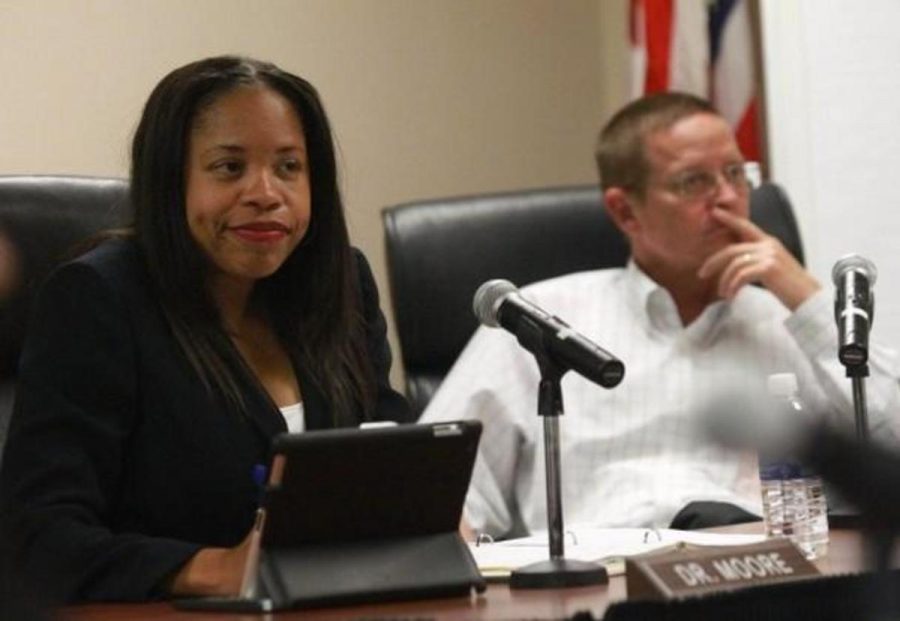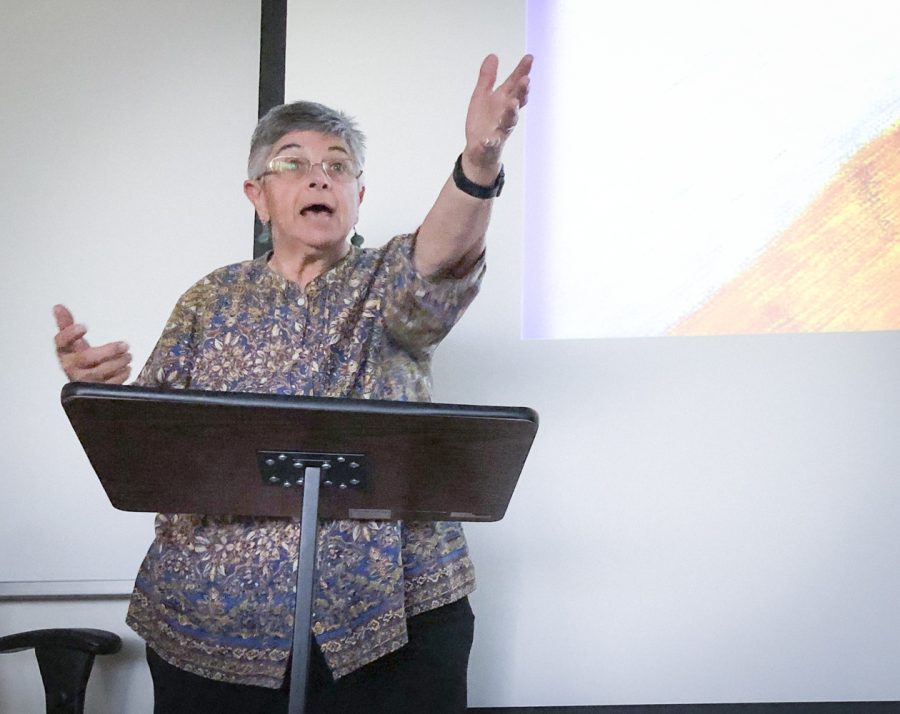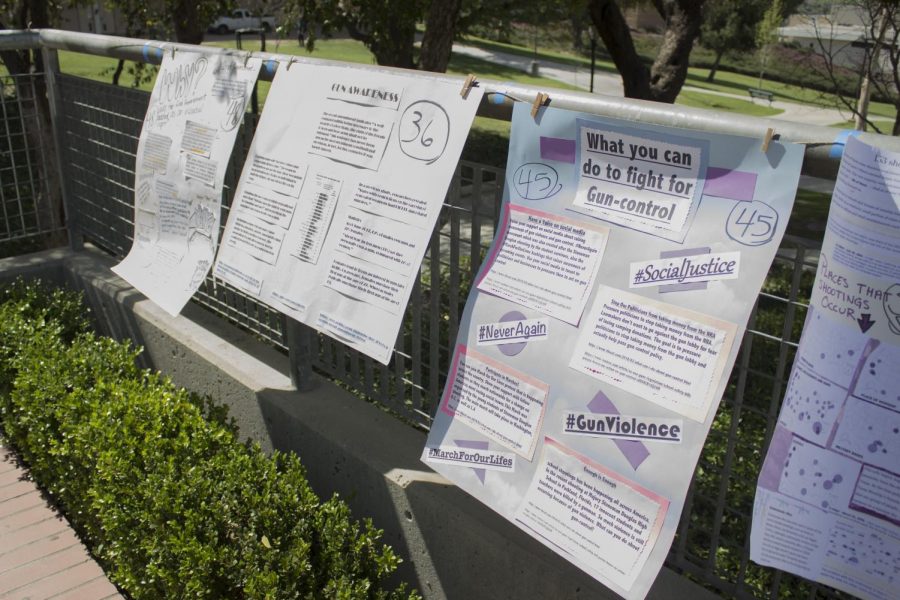A recent agreement between the district and the Federation of College Teachers has increased faculty salaries, but was it the right decision?The Ventura County Community Colleges District agreed to raise faculty salaries on Nov.12, which is something that faculty have not received in five years. While the agreement was still passed among the Board of Trustees, the motion caused some debate among its members.
The agreement, which was between the Ventura County Community Colleges District and the Ventura County Federation of College Teachers, proposed a 3.25% increase to compensation to cover increase to salaries and health insurance premiums.
The agreement was approved by the board in a 3-2 vote, with Trustees Dianne McKay and Bernardo Perez both voting against it due to concerns about cost sustainability(replace w/ stability). However, once the motion had been passed, an agreement to also raise the salaries of both managers and supervisors was unanimously passed with a 5-0 vote. Chancellor Jamillah Moore later declined any raise to her salary after she was approved for a three-year contract extension.
The back-and-forth that this topic caused among the trustees raised a very important question: should college faculty be given raises at this time?
“As much as I want to be ‘Santa Claus,’ I just don’t think these costs can be sustainable,” said McKay.
McKay’s disapproval rested mainly with her concerns of the sustainability, involving the proposedagreement. She commented that the decline in K-12 enrollment was a cause for concern and claimed it’s just “too big of a bite.”
Perez agreed with McKay’s points by also voicing some concern about sustainability. He explained that there were aspects of the agreement that he liked, but the sum of all of its parts brought up some issues. He liked that the agreement resolved some inequities that faculty have received from compensation in previous years, but claimed that using this revenue now to make up for these inequities causes some concern for the future.
“The district was very healthy three years ago, and we got there with prudent fiscal policy. It’s difficult to disregard that,” said Perez.
He also explained that the revenue maintained from Prop 30 are interim, leaving the district to find other opportunities in order to sustain these costs. Since Prop 30 only halted school budget cuts, any extra funds that are being used are coming from existing resources.
Steve Hall, the President & Chief Negotiator of the Ventura County Federation of College Teachers, appreciated the open discussion among the Board of Trustees and offered his own perspective on the matter.
“(The faculty) have a commitment to student success,” said Hall. “That is what’s important, so we will continue to meet the educational needs of students.”
Hall went on to explain that each year the salary must be renegotiated, but faculty have not received any increase in compensation for the past five years. With the assistance of Prop 30, the costs should not be substantial, so he questioned why there should be any concern about sustainability.
According to the Legislative Analyst offices fiscal outlook, revenues for 2012-13 ended stronger than was assumed. They estimate that 2012-13 ended with a $234 million reserve, and that the original estimate of the reserve from the 2013-14 budget will more than double.
Hall explained that this higher-than-expected revenue reserve makes the $2 million effect that these raises will have on the budget a lot less significant. It’s a small part of the revenue, according to Hall, so sustainability shouldn’t be an issue.
Other trustees commended the continued effort among the faculty, and claimed that these raises would be a great way to show appreciation for their valued work.
Trustee Arturo Hernandez countered McKay’s previous statement in an attempt to add some perspective on why faculty deserved these raises.
“We’ve stayed resilient,” said Hernandez, “I’m not trying to be ‘Santa Claus.’ I really believe that we can do this, because the costs are not extravagant.”
Trustee Steve Blum agreed with Hernandez and offered his own comments as well.
“Our employees are a good bet,” said Blum. “They’ve done so much for us in the past.”
Student Trustee Nicholas Rodriguez said that some part-time staff are living in their cars and cannot maintain the cost of living, so these compensations become very important.
McKay again offered her own refute towards the other trustees.
“It’s not a lack of value or trust,” said McKay. “It’s just too much of a stretch for us to sustain.”
The projections show that these costs may not be much of a stretch at all, so these raises seem like a fair way to spend any additional revenue that is being obtained. However, Perez brought up the fair point that these are still just projections.
“The revenue projections are healthier,” said Perez. “But since these are just projections, I’m still uncertain.”
Based on this perspective, Perez still stands by his decision to vote against the agreement. This is a very fair perspective on the matter, so it’s understandable that there would still be any concerns regarding sustainability.
Both sides on this issue offered a logical argument that made sense for certain aspects of the agreement. It was therefore difficult to determine the best course of action. The discussion among the board wasn’t heated, and both sides presented their points very concisely. Even Perez agreed that each side offered logical arguments on the matter.
“It was just one of those situations where five people could look at the same information and come up with different, yet logical opinions,” said Perez. “No matter what, I know that the board will make a meaningful and responsible decision.”
Perez, along with many other attendees at the meeting, enjoyed the sophisticated and productive back-and-forth between the trustees.
However, based on the facts and current projections that are in favor of these raises, the board absolutely made the right decision. There will always be questions about the effects that the cost could have when making decisions like these, but it’s important to make the productive steps towards a better future for the school.
Looking to the long term effects, it is important to be concerned about the future when making decisions like this. Since the future currently has the potential to be brighter than it has in years, it should be a great time to add on to this good fortune. Positive progress isn’t made without taking action, or potential risks, but the current data even suggests that this agreement is low-risk.
Faculty raises are also a great way to show them that revenue is improving, and offer a suitable compensation for their resilience through the rough past few years. It even offers some hope for the future, and shows that the district cares about the people that they represent, and will assist in their effort to focus on the success of their students.
“All of the team members (involved in negotiating for this agreement) were effective, reliable, and dedicated,” said Hall in his board report. “I truly appreciate all their contributions to our new contract.”






